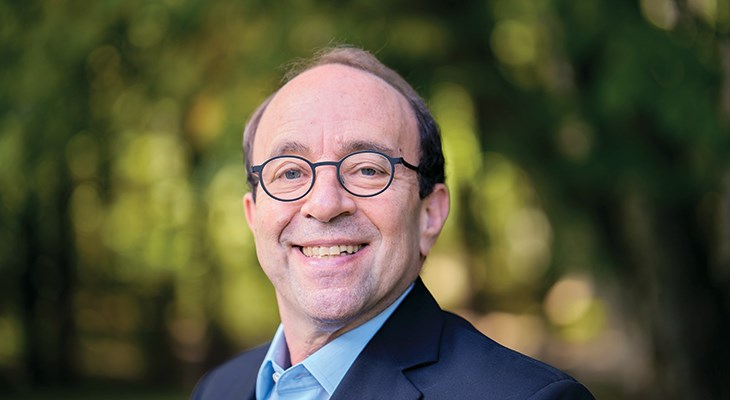Dick Simon, a serial entrepreneur and leader in advancing psychedelic-assisted therapies, is the co-founder and CEO of Sensorium Therapeutics, a company that identifies new, promising drug leads for therapeutics inspired by psychoactive plants and fungi to address mental health issues such as anxiety. And, according to Simon, there is a serious mental health crisis happening, one that's affecting millions of people whose lives are severely impacted by mental health issues, for which current medications and treatments are not successfully addressing.
"What we're doing is looking at substances — plants and fungi — that have a long history of human use for what we now call mental health or central nervous system conditions, to address anxiety, depression and other life-limiting conditions," he says. "And what we're then utilizing those we describe it as inspired by nature, so we're looking at what is actually working in that plant and fungi to deliver the results. We're looking It with human neuronal cells and other methods of figuring out mechanism of action, what's getting through to the brain and then ultimately how to create a version that can, in a modern context — of a pill a day rather than chewing bark all day or whatever else that might be — how we can utilize that to develop a new therapeutic to alleviate suffering without a lot of the really bad side effects that many current psychiatric medications have."
As the company looked to raise money, including a recent fundraise that brought a $30 million Series A into the business in 2022, Simon says the company had an incredibly interesting vantage point to a shift in general market sentiment in the summer of 2021 when the company was raising a seed round — which took about a week.
"There was tremendous enthusiasm about the potential of mental health and biotech, etc.," he says. "And it was a very different environment, unrelated to Sensorium, in 2022, where there's a lot of something that's called de-risking — people just concerned about taking on risk. So, rather than seeking risk for greater returns, you get a backlash to economic conditions where people are trying to reduce risk, willing to sacrifice potential returns, but take less risks."
He says he also found that a number of funds were interested in what the company was doing, but some funds were choosing to reserve all of their money for existing portfolio companies that were having trouble raising money. Other funds were having trouble raising their next fund.
Additionally, the fact that the company was doing drug discovery and development as well as creating a platform worked for some investors, while others just wanted to know about the drugs, or others only wanted to invest in platforms and considered the drugs more of a distraction.
"We have a number of perfect partners now who get what we are doing but there are some situations where there was a desire for A or B but not the combination of the two, even though they're completely synergistic," he says. "But I understand the concerns raised. And then finally, in some situations, we were earlier, in terms of where we are, than the stage that a particular venture fund might invest in. And in others we were later. So, you look for the Goldilocks spot."
Simon spoke on the Smart Business Dealmakers Podcast about the company's mission and its search for the right investors.




